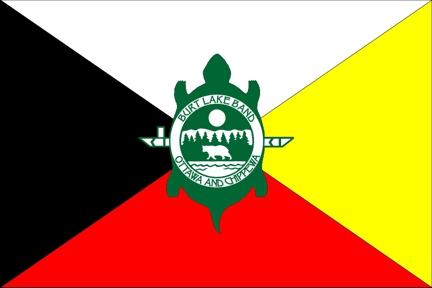This article was originally published by www.courthousenews.com.
A federal judge ordered a review of the rule all the way back in 2020. Three years later, the feds still have little to show.
WASHINGTON (CN) — All the way back in March 2020, a federal judge ordered the Interior Department to review a decades-old rule on tribal sovereignty. The rule banned tribal groups from seeking federal recognition if they’d already been denied before.
That judge — U.S. District Judge Amy Jackson, an Obama appointee — said tribes should have a right to re-petition for recognition even if they were already rejected. Otherwise, she said, the Interior Department risked continuing historical wrongs against indigenous people. The Interior Department runs the Bureau of Indian Affairs, an agency that has historically played a large role in the forced assimilation and relocation of indigenous Americans as white settlers expanded west.
Now, after more than three years and a changing of the guard in Washington, the rule remains under review with no projected deadline to resolve it. Jackson, who’s overseen the underlying lawsuit for years, let her impatience be known at a hearing Tuesday in a federal court in D.C.
“Isn’t this the point where we need to light a little fire underneath and move something from the side burner to the front burner?” Jackson asked the Devon McCune, a lawyer for the department.
McCune demurred, saying the rule was just one of the department’s “many priorities.” She explained the Interior Department does not have an internal deadline for the matter and said she couldn’t recommend a reasonable timeframe in which Jackson could see a new rule.
The initial legal dispute started back in 2017, when he Burt Lake Band of Ottawa and Chippewa Indians, a small tribal community in Michigan, challenged a new proposed rule for federal recognition. The small community of just over 300 people has tried for nearly 90 years to be formally recognized as a legitimate tribe.
The Bureau of Indian Affairs announced a new version of that rule in 2015, saying it was intended to make the recognition process — which can take years — faster and more efficient. Still, it left the ban on re-petitioning intact.
The Burt Lake Band say they once had formal recognition but lost it and became landless following their relocation from northern Michigan. They’re seeking recognition again in hopes of regaining access to their ancestral lands and enjoying federal programs only afforded to formally recognized tribes.
According to the group’s initial complaint, their predecessor, the Cheboygan Band, was twice recognized as a sovereign nation by the Treaty of Washington in 1836 and the Treaty of Detroit of 1855. Then, in 1900, Michigan timber baron named John McGinn enlisted the local sheriff and his deputies to force Cheboygan women, children and elderly out of their homes while the men were away collecting their paychecks. Once the homes were emptied, McGinn and his men doused the homes in kerosene and burned them to the ground.
The tragic event became known as the “Burt Lake Burn-Out” — and since then, the Burt Lake Band has lacked a reservation or even formal acknowledgment of their existence. The tribe started the process of petitioning for recognition in 1935, but the Bureau of Indian Affairs never ruled on that petition.
The tribe petitioned again in 1985, only to be denied 21 years later in 2006. Much of the community is elderly, and they may die before the tribe gets recognition, Justin Nemeroff, an attorney with the D.C. law firm Veneable who is representing the Burt Lake Band, said at the hearing on Tuesday.
All of this would seem to go against a years-old ruling from Jackson, who in 2020 ordered the bureau to reconsider its ban on re-petitioning. In her order, she found the record did not support the bureau’s “limited justifications for the ban” and that it was therefore “arbitrary and capricious.”
In court on Tuesday, McCune, the Interior Department lawyer, defended the department’s delay. She said public comments on the changes were held in June last year — well within the Interior Department’s usual timeframe. She said the COVID-19 pandemic and the transition of President Joe Biden’s administration contributed to the delay.
Jackson was understanding about these challenges but said there was no excuse for so little action after three years. She noted that the Burt Lake Band was waiting to find out if they could once begin the years-long process of applying for recognition.
“I think this is taking a lot of time and I am not happy about it,” Jackson said of this yearslong legal case.
Despite Jackson’s frustrations, though, Tuesday’s hearing ended with no clear timeline on when the Burt Lake Band or other indigenous Americans could expect to see a new rule. The rule is currently under review at the Office of Information and Regulatory Affairs, and McCune did not indicate when the court could expect a response.
At court on Tuesday, Jackson floated idea of setting a deadline for the proposed rule — an option that could have forced federal regulators to show results in court. In the end, after hearing from the Interior Department, Jackson declined to do so. For now at least, the Burt Lake Band will have to keep on waiting.

